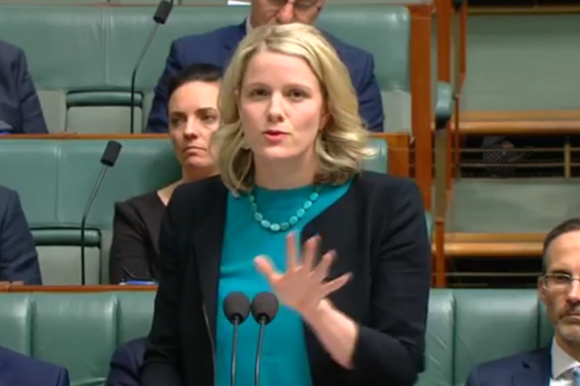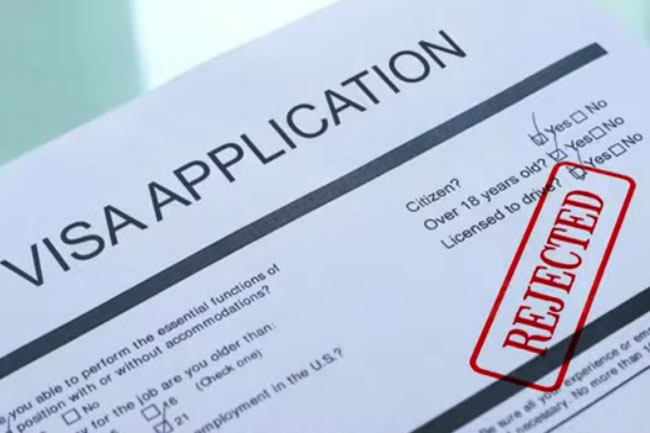As part of its response to the Nixon Report on visa integrity, the Albanese Government has announced a further batch of changes to student visa policies to target rorts and abuse.
*Also listen to the audio version of this article on Spotify HERE.
This followed a first tranche a few weeks ago. The Government says there is more to come.
So what is in this latest batch and what might that mean for student numbers and the future of the overseas student program?
Firstly, the Government proposes to ‘build risk indicators across the international education system’.
We have used risk indicators to manage the student visa system since 1 July 2001 (it was a year prior to that I remember being told by the Education Department that we need not worry about provider integrity issues because they would regulate providers strongly).
The intention of this change appears to be that the Government will use these long-standing risk indicators more widely and in particular by the two education quality regulators — the Tertiary Education Quality and Standards Agency (TEQSA) and the Australian Skills Quality Agency (ASQA) for the Vocational Education and Training (V.E.T.) sector.
That is a good thing, but why the regulators have not used these risk indicators in the past 20 years remains a mystery.
The key now will be "how" the regulators will use these risk indicators. For example, if a provider has a very high-risk rating, what will the regulator do with that information? Does a very high-risk rating just lead to further monitoring/investigation or does it mean the provider's Commonwealth Register of Institutions and Courses for Overseas Students (CRICOS) licence is suspended while the investigation takes place, particularly when the risk rating is screaming out problems?
My fear is that the regulators' response will remain weak (as it almost always has been) unless the Government also uses some objective pass/fail benchmarks that force the regulators to act.
Secondly, the Government proposes to ‘increase monitoring of student attendance’.
This is also good, but why did monitoring of student attendance by the Department of Home Affairs (DHA) and the regulator (generally only V.E.T. providers have attendance requirements) fall away over the past 6-7 years? How will the monitoring be done? Will it be just desk-based requests for attendance records or will there also be site visits? How will this monitoring integrate with the resumption of limits on student work rights that resumed on 1 July 2023?
What additional resources are going to be provided to enable this greater monitoring? Without more resources, nothing much will change. And will the Government introduce stronger minimum attendance requirements, stronger attendance record-keeping requirements and stronger penalties for non-compliance?
Thirdly, the Government will prevent cross-ownership of colleges between providers and education agents. This is also a positive step and will force many providers/education agents to divest one of their businesses. How this is done and enforced will be critical. There is also the question of what happens to the students currently attending these colleges as well as the providers who are de-registered.
There is merit in this restriction being extended to cross-ownership between providers and migration agents. Migration agents should not be allowed to also own and run private colleges that provide courses to overseas students.
Fourthly, the Government will ‘prohibit agent commissions on student transfers between providers in Australia’.
This is another positive step but how will it be implemented and enforced given we do not regulate education agents? Will it just be something providers are trusted to enforce or will the regulators inspect the books of providers to check commissions have not been paid?
Finally, ‘providers will be given greater access to agent performance data such as student completion rates and visa rejection rates’.
This is also very good but why not make the data public? Naming and shaming both agents and providers would be a great motivator towards taking education quality and visa integrity seriously.
An issue that remains unresolved is how the Government will design the “genuine student” visa requirement to replace the completely unworkable and pointless “genuine temporary entry” requirement. We may get the answer to this soon.
Impact on student and provider numbers
The lax regulation of the student visa system and the associated providers over the last decade has contributed to the current boom in student numbers to new records and the rise in education providers registered to provide courses to overseas students. No doubt both major parties will squabble over who is at fault which is a pretty pointless exercise.
If these and the changes announced a few weeks ago are effective (and properly resourced), we should see a sharp increase in providers being de-registered over the next 6-12 months and a gradual decline in both onshore and offshore student visa application rates. That will help reduce the contribution of students to net migration from the currently unsustainable levels (for example, 219,340 or over 56 per cent in 2022).
The objective should be to ensure we attract the highest quality students who are committed to doing high-quality courses with high-quality providers that lead to well-paying jobs in areas of need for Australia. After all, in many instances, the overseas students of today will be the Australian citizens of tomorrow.
*This article is also available on audio here:
Dr Abul Rizvi is an Independent Australia columnist and a former Deputy Secretary of the Department of Immigration. You can follow Abul on Twitter @RizviAbul.
Related Articles
- Net migration set to hit record high levels in 2023
- ABS data spurs media into 'recession' panic
- COVID visa stream to be closed at long last
- Government seeking to address student visa rorting
- Nixon report challenges Home Affairs over visa system exploitation
 This work is licensed under a Creative Commons Attribution-NonCommercial-NoDerivs 3.0 Australia License
This work is licensed under a Creative Commons Attribution-NonCommercial-NoDerivs 3.0 Australia License
Support independent journalism Subscribe to IA.
















